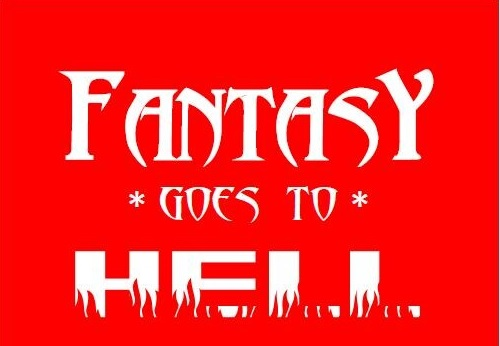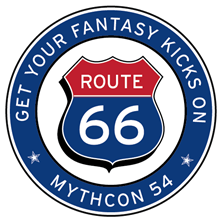Loading...
Event Website
https://www.mythsoc.org/oms/oms-2023.htm
Start Date
8-6-2023 5:30 PM
End Date
8-6-2023 6:20 PM
Description
In the His Dark Materials trilogy, Phillip Pullman has openly positioned himself as the anti-C.S. Lewis who attempts to embed the gospel of atheism through his fantasy novels. Pullman recasts classics such as Paradise Lost and Blake’s The Marriage of Heaven & Hell so that humans triumph over the oppressive Authority by learning that sinning is simply enjoying life. This paper will specifically explore Pullman’s depictions of the underworld and his alternative vision of Hell, Purgatory, and Heaven in The Amber Spyglass, examining Pullman’s attempts to assure readers that by rejecting Christian views of the final translation, one can live more freely and happily knowing that there is no individual afterlife. To help defeat the Authority, Lyra and Will journey through the grim underworld and free the spirits trapped there, allowing the ghosts to dissolve and escape the grim underworld. The ultimate end, and the greatest hope, is that Lyra promises the dead they will become “part of everything. All the atoms that were them” go “into the air and the wind and the trees and the earth and all the living things” (319). Each soul dissolves, but this is better than an eternal, grim waiting in the underworld. This paper will argue that by denying the reality of eternal souls, Pullman offers pernicious paradoxes (and outright contradictions) in his novels which are puzzling at best and even more frightening at worst than the doctrines he seeks to supplant.
Creative Commons License

This work is licensed under a Creative Commons Attribution-NonCommercial-No Derivative Works 4.0 International License.
Included in
Children's and Young Adult Literature Commons, Comparative Literature Commons, Digital Humanities Commons, European Languages and Societies Commons, Literature in English, Anglophone outside British Isles and North America Commons, Literature in English, British Isles Commons, Literature in English, North America, Ethnic and Cultural Minority Commons, Medieval Studies Commons, Modern Languages Commons, Modern Literature Commons, Other English Language and Literature Commons
Pullman’s Problematic Paradise: Dissolving into Dust
In the His Dark Materials trilogy, Phillip Pullman has openly positioned himself as the anti-C.S. Lewis who attempts to embed the gospel of atheism through his fantasy novels. Pullman recasts classics such as Paradise Lost and Blake’s The Marriage of Heaven & Hell so that humans triumph over the oppressive Authority by learning that sinning is simply enjoying life. This paper will specifically explore Pullman’s depictions of the underworld and his alternative vision of Hell, Purgatory, and Heaven in The Amber Spyglass, examining Pullman’s attempts to assure readers that by rejecting Christian views of the final translation, one can live more freely and happily knowing that there is no individual afterlife. To help defeat the Authority, Lyra and Will journey through the grim underworld and free the spirits trapped there, allowing the ghosts to dissolve and escape the grim underworld. The ultimate end, and the greatest hope, is that Lyra promises the dead they will become “part of everything. All the atoms that were them” go “into the air and the wind and the trees and the earth and all the living things” (319). Each soul dissolves, but this is better than an eternal, grim waiting in the underworld. This paper will argue that by denying the reality of eternal souls, Pullman offers pernicious paradoxes (and outright contradictions) in his novels which are puzzling at best and even more frightening at worst than the doctrines he seeks to supplant.



Comments
SESSION VI
5:30 PM—6:20 Eastern
4:30 PM—5:20 Central
3:30 PM—4:20 Mountain
2:30 PM—3:20 Pacific
9:30 PM—10:20 GMT